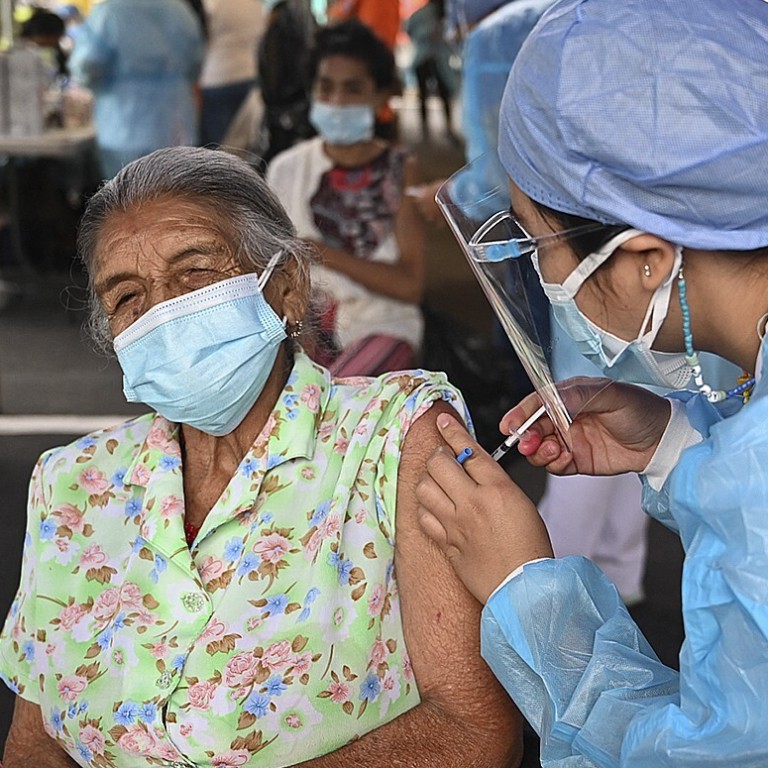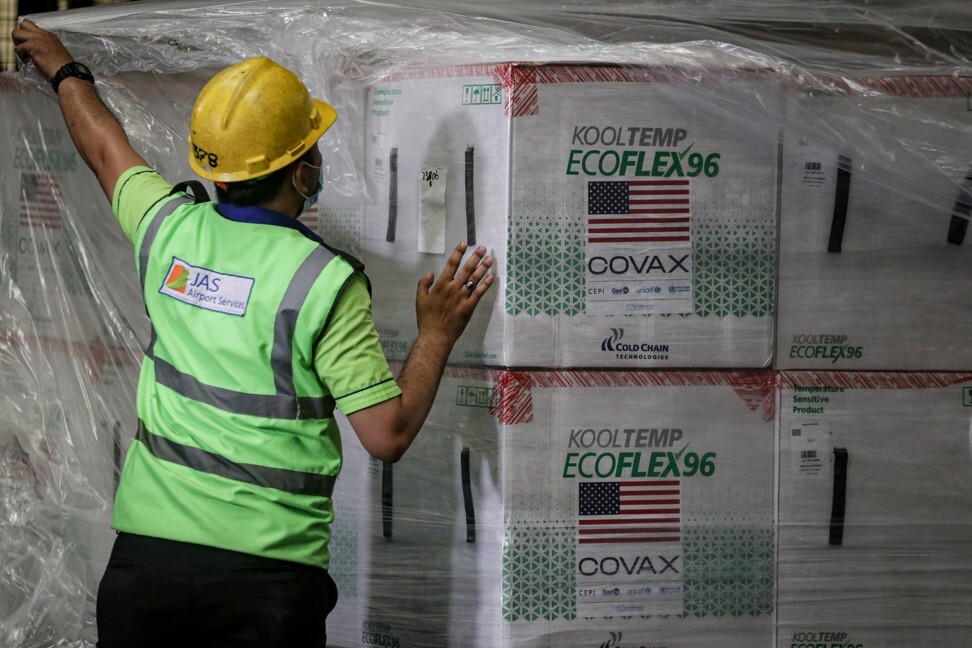
Coronavirus: Moderna says its vaccine remains 93 per cent effective 4 to 6 months after second dose
- The latest result shows hardly any change from the 94 per cent efficacy reported in its original clinical trial
- A durable vaccine could mean recipients may be able to wait longer between shots if they do eventually need a booster, or may even not need additional doses
That compares favourably to data released last week by rivals Pfizer and BioNTech, in which they suggested their vaccine’s efficacy waned around 6 per cent every two months, declining to around 84 per cent six months after the second shot.
Both the Moderna and Pfizer-BioNTech vaccines are based on messenger RNA (mRNA) technology.
Global coronavirus cases pass 200 million as Delta variant spreads
Moderna posted second-quarter sales of US$4.4 billion, slightly above an average estimate of US$4.2 billion drawn from 10 analysts polled by Refinitiv. Its Covid-19 shot is the firm’s first authorised product and sales were just US$67 million in the same period last year.
The company logged US$2.78 billion in net income in the quarter or US$6.46 a share, beating expectations of US$2.46 billion or US$5.96 a share.
A durable vaccine could mean recipients may be able to wait longer between shots if they do eventually need a booster or may even not need additional doses to prevent Covid-19.
Pfizer plans to ask for authorisation for a third shot of its vaccine later this month, and some countries – like Israel – have already begun or plan to soon begin administering shots to older or otherwise vulnerable people.
US plans to require foreign visitors be vaccinated
Moderna said its ongoing studies of three different booster candidates induced robust antibody responses against important variants of concern.
These included the Gamma, Beta and Delta variants which were first identified in Brazil, South Africa and India, respectively.
It said neutralising antibody levels following the boost approached those observed after the second shot of its vaccine.
For this year, Moderna has signed US$20 billion worth of sales and expects to be able to produce between 800 million and 1 billion doses of the vaccine.
It has agreements for US$12 billion in 2022, with options for another roughly US$8 billion. It expects to be able to produce between 2 and 3 billion doses next year.
The company has not been able to keep pace with the production of much larger rival Pfizer, which expects to produce as many as 3 billion vaccine doses this year, and expects 2021 sales of the vaccine it developed with BioNTech to top US$33.5 billion.
Moderna’s vaccine was authorised for emergency use in adults in the US in December and has since been cleared for emergency or conditional use in adults in more than 50 countries.
The company started the process of filing for full approval with the US Food and Drug Administration in June and expects to finish its submission in August.


